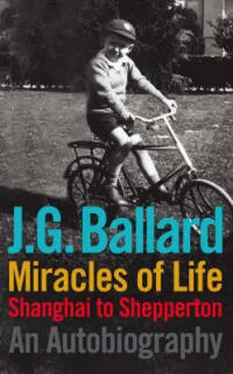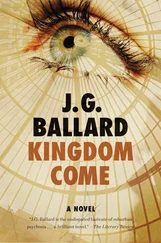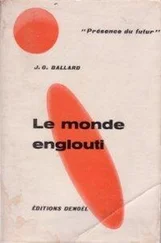A close friend of my father was a senior Shell executive called Braidwood, who was chairman of the internees committee that ran the camp administration. In the 1980s his widow sent me the typed minutes of the committee meetings, some of which my father attended. These describe a wide range of daily problems and there are copies of formal letters addressed to the Japanese commandant and the military officers who replaced him. They cover the general health of the internees, abusive behaviour by the guards, the lack of medicines, the scarcity of fuel for the drinking-water boilers, the need for Red Cross supplies of clothing (much of which was pilfered by the guards) and, above all, the inadequate food rations – all problems in which the Japanese military had not the slightest interest. According to Braidwood’s records, the daily calorie count in 1944 was approximately 1500, and fell sharply to 1300 during 1945. I can only guess what fraction of that figure was represented by the weevils.
7
Chess, Boredom and a Certain Estrangement (1943)
I thrived in Lunghua, and made the most of my years there, in the school report parlance of my childhood. My impression is that, during the first year of internment, life in the camp was tolerable for my parents and most of the other adults. There were very few rows between the internees, despite the cramped space, malaria mosquitoes and meagre rations. Children went regularly to school, and there were packed programmes of sporting and social events, language classes and lectures. All this may have been a necessary illusion, but for a while it worked, and sustained everyone’s morale.
Hopes were still high that the war would soon be over, and by the end of 1943 the eventual defeat of Germany seemed almost certain. The commandant, Hyashi, was a civilised man who did his best to meet the internees’ demands. Almost a caricature short-sighted Japanese with a toothbrush moustache, spectacles and slightly popping eyes, he would cycle around Lunghua on a tandem bicycle with his small son, also in glasses, sitting on the rear saddle. He would smile at the noisy British children, a feral tribe if there was one, and struck up close relationships with members of the camp committee. Among the documents Mrs Braidwood sent me was a letter which Hyashi wrote to her husband some time after he had been dismissed as commandant, in which he describes (in English) his horse rides around Shanghai and sends his warm regards. After the war my father flew down to the war-crimes trials in Hong Kong and testified as a witness for Hyashi, who was later acquitted and released.
I also made friendships of a kind with several of the young Japanese guards. When they were off duty I would visit them in the staff bungalows fifty yards from G Block, and they would allow me to sit in their hot tubs and then wear their kendo armour. After handing me a duelling sword, a fearsome weapon of long wooden segments loosely strung together, they would encourage me to fence with them. Each bout would last twenty seconds and involved me being repeatedly struck about the helmet and face mask, which I could scarcely see through, every dizzying blow being greeted with friendly cheers from the watching Japanese. They too were bored, only a few years older than me, and had little hope of seeing their families again soon, if ever. I knew they could be viciously brutal, especially when acting under the orders of their NCOs, but individually they were easy-going and likeable. Their military formality and never-surrender ethos were of course very impressive to a 13-year-old looking for heroes to worship.
For me, the most important consequence of internment was that for the first time in my life I was extremely close to my parents. I slept, ate, read, dressed and undressed within a few feet of them in the same small room, in many ways like the poorer Chinese families for whom I had felt so sorry in Shanghai. But I revelled in this closeness, which I assume has been a central part of human behaviour throughout most of its evolution. Lying in bed at night I could, if I wanted to, reach out and take my mother’s hand, though I never did. In the early days when there was still electric power my mother would read late into the night, hidden inside her mosquito net only a few feet away, as my father and sister slept in their beds behind us. One night a passing Japanese officer spotted the light through the home-made blackout curtain. He burst into the room, barely a foot from me, drew his sword and slashed away the mosquito net above my mother’s head, then thrashed the light bulb into fragments and vanished without a word. I remember the strange silence of people woken in the nearby rooms, listening to his footsteps as he disappeared into the night.
Somehow my mother survived, but she and my father struck up few close friendships with the other G Block internees. Though all had children, the families kept their distance from each other, presumably to maintain their privacy, a desperately short commodity when an evening curfew was introduced and we were confined to quarters for the hours of darkness.
But I flourished in all this intimacy, and I think the years together in that very small room had a profound effect on me and the way I brought up my own children. Perhaps the reason why I have lived in the same Shepperton house for nearly fifty years, and to the despair of everyone have always preferred make-do-and-mend to buying anew, even when I could easily afford it, is that my small and untidy house reminds me of our family room in Lunghua.
I realise now just how formal English life could be in the 1930s, 40s and 50s for its professional families. The children of doctors, lawyers and company directors rarely saw their fathers. They lived in large houses where no one shared a bedroom, they never saw their parents dressing or undressing, never saw them brush their teeth or even take off a watch. In pre-war Shanghai I would occasionally wander into my parents’ bedroom and see my mother brushing her hair, a strange and almost mysterious event. I rarely saw my father without a jacket and tie well into the 1950s. The vistas of polished furniture turned a family home into a deserted museum, with a few partly colonised rooms where people slept alone, read and bathed alone, and hung their clothes in private wardrobes, along with their emotions, hopes and dreams.
Lunghua Camp may have been a prison of a kind, but it was a prison where I found freedom. My parents were always at hand to answer any query that crossed my mind – a difficulty with my French prep, the existence or otherwise of God, or the meaning of ‘you play on my mistakes’, a phrase uttered sagely by my adult chess opponents when they were on the point of losing. In no sense did I think of myself as a misfit (which was certainly true once I came to England in 1946), and nor did anyone else, as far as I can remember. In many ways I was the opposite of a misfit, and adapted too well to the camp. One of my chess partners, a likeable architect named Cummings with a haemophiliac son who became a huge success in Hong Kong after the war, once remarked: ‘Jamie, you’ll miss Lunghua when you leave…’
Until I arrived in England I had been lucky to have a happy childhood, and any shocks that shaped my character came not from my family but from the outside world – the sudden scene-shifting I witnessed in 1937 and 1941. If anything, the years in Lunghua offered the first stability I had known since I had been a small child, a stability that the adult internees around me had done little or nothing to create. I felt fairly sceptical about the adult world and the notions of good sense and decisive thought promoted by my parents and teachers. War, I knew, was an irrational business, and the sensible predictions of architects, doctors and managing directors had a marked tendency to be wrong.
Читать дальше






